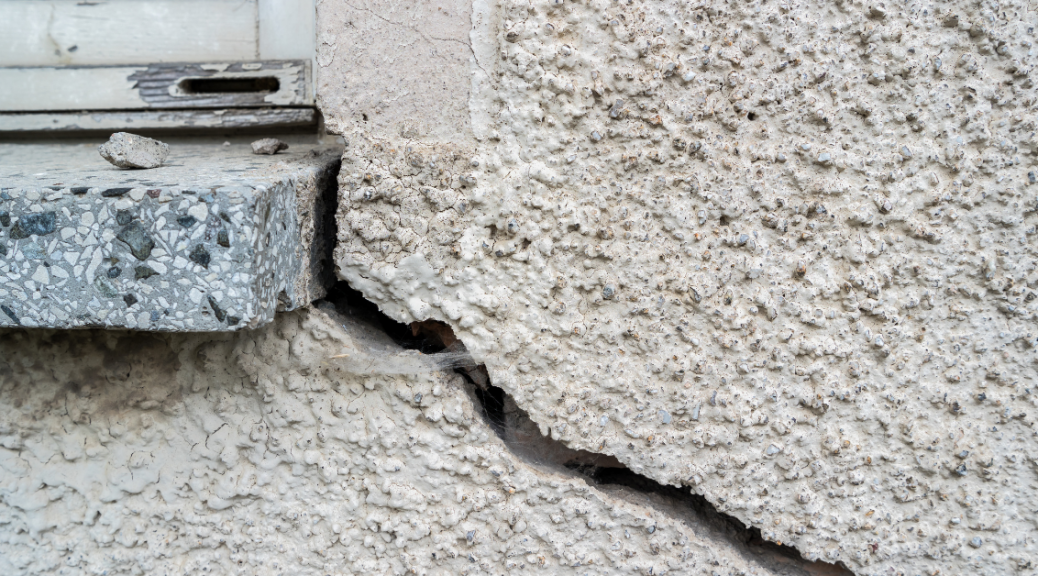Our home is not just a shelter. Our home is a place where we feel safe, secure, and protected.
But what happens when your home has structural repair issues? Is it safe to still live there? It depends on the severity of the issues and their potential risks. Some home structural issues may be cosmetic or minor, while others can compromise the stability and safety of the entire structure. It’s crucial to accurately assess the severity of the problem before making any decisions.
Here are home structural repair issues and their safety considerations:
- Foundation issues: Cracks in the foundation, uneven settling, or shifting can affect the entire framework of the house. If you suspect foundation problems, it’s essential to consult with a structural engineer to determine the extent of the damage and the necessary repairs.
- Wall and roof leaks: Leaks in the walls or roof can weaken the structure and lead to mold growth, which can affect indoor air quality and pose health risks.
- Wall or ceiling cracks: Small cracks in walls or ceilings might be due to normal settling, but large or rapidly growing cracks can indicate more serious issues.
- Termite or pest damage: Pests like termites can cause significant damage to the wood structure of a home. If left untreated, this damage can weaken the integrity of the building. Regular pest inspections and prompt treatment are crucial.
- Aging and deterioration: Older homes may show signs of wear and tear due to aging. A thorough inspection can help determine if the home’s structural integrity is compromised.
- Electrical and plumbing issues: Faulty electrical or plumbing systems can lead to safety hazards and potential damage to the structure. If not repaired, it may lead to fires, flooding, and related structural problems.
Living in a home with structural issues can pose various safety concerns:
- Health Risks: Water leaks and mold growth, can impact indoor air quality and pose health risks to residents, particularly those with allergies or respiratory conditions. ***
- Collapse Risk: It can lead to partial or complete collapse of the building. This poses an imminent threat to the safety of occupants.
- Resale Value: Structural problems can reduce the resale value of a property. If you’re planning to sell your home, these issues must be resolved.
- Maintenance Costs: Structural issues can lead to further damage and higher repair costs over time. Prompt repairs can save you money in the long run.
If you suspect your home has structural issues, it’s important to consult with professionals:
- Structural Engineer: A licensed structural engineer can assess the severity of the issues and recommend appropriate repairs and provide an unbiased evaluation of the situation.
- Home Foundation Repair Contractor: A contractor specializing in foundation, roofing, plumbing, etc., can provide estimates and execute the necessary repairs.
If you’re waiting on structural repairs, there are precautions you can take to minimize risks:
- Limit Use: Don’t place heavy loads on areas that show signs of structural problems. This can help prevent further damage.
- Monitor Changes: Watch cracks, shifts, or other changes in the structure. Document any developments.
- Address Safety Hazards: If there are immediate safety hazards, like exposed wiring or shaky support beams, take steps to mitigate these risks.
Some issues may only require minor repairs, while others can compromise the safety of occupants. Promptly addressing structural issues through professional assessments and repairs will help maintain a safe and secure living environment.
M Taylor Enterprise has an expert home structural repair team that can inspect your home to see if you have any home structural issues. Call our home foundation and structural repair experts in Maryland at (301) 649-3406 or email matt@mtaylorenterprise.com. We will do a free consultation, make recommendations, then do any needed repairs quickly and efficiently.
We serve Montgomery County, MD, parts of Prince George’s, MD, and Howard County, MD.
*** For more information on the health risks of mold, visit the CDC website.






